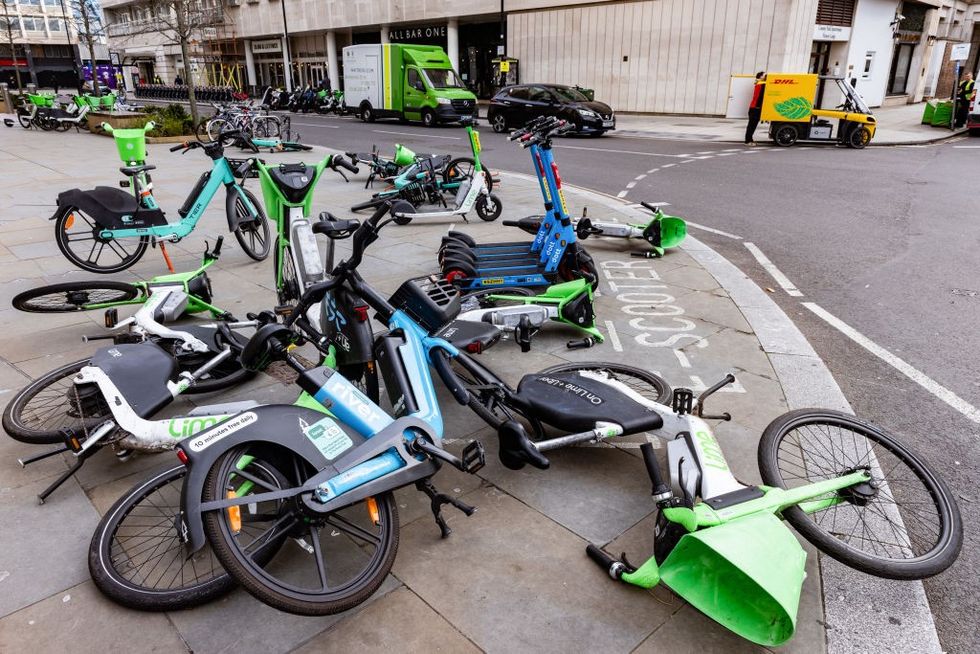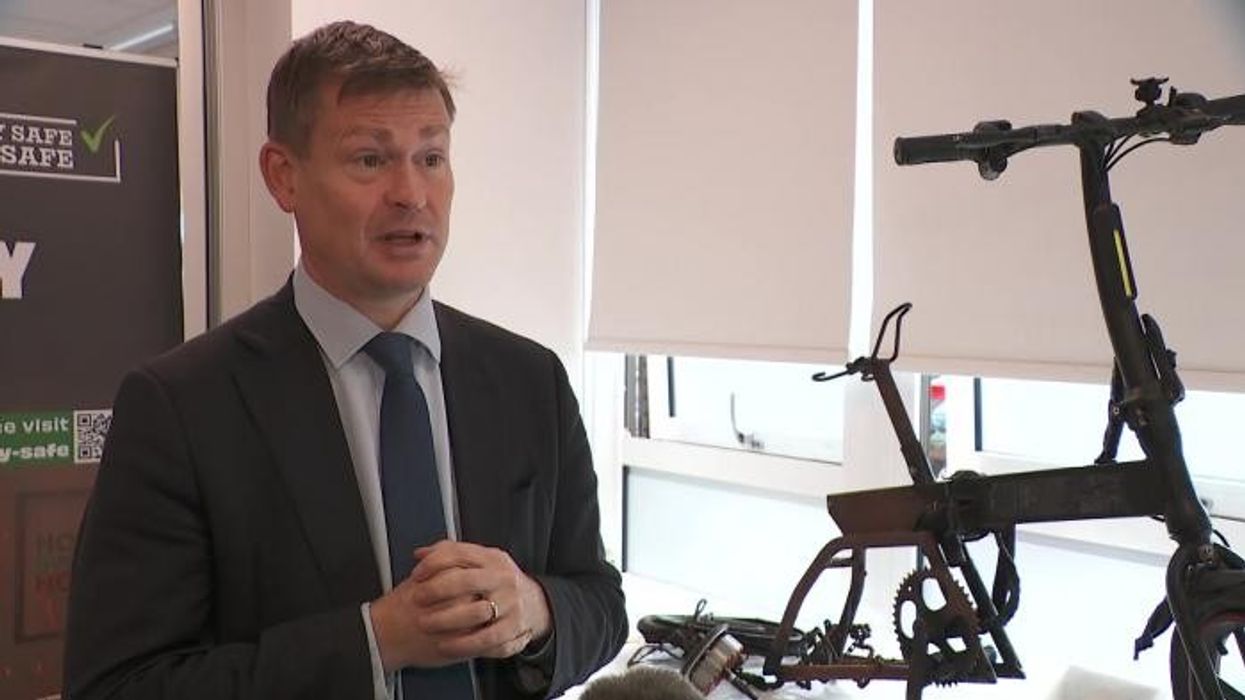Britons forced off pavements as e-bikes and e-scooters fail to follow traffic rules

More than nine in 10 visually impaired pedestrians have had to go onto the road due to pavements being blocked
Don't Miss
Most Read
Electric bikes and scooters have been found to force more vulnerable pedestrians onto the roads as poor parking clogs up pavements.
It follows a recent survey that discovered 92 per cent of visually impaired individuals have been forced to enter traffic because of electric bikes and scooters blocking footpaths, with Labour now being urged to act.
The Royal National Institute of Blind People (RNIB) warned that the situation was a "nightmare" for those with sight loss who have no choice but to go onto the road in some cases due to clogged-up pavements.
Alarmingly, over a third of respondents experienced physical collisions with street obstacles within the past quarter.
Do you have a story you'd like to share? Get in touch by emailing motoring@gbnews.uk

E-bikes and e-scooters have been clogging up pavements, forcing pedestrians onto the street
|GETTY/PA
Government data indicated that 52 pedestrians sustained serious injuries from e-scooter collisions across England during 2023, while separate research documented that rental e-bike users violate traffic signals more frequently than any other road user category.
In one shocking case, an individual reported losing their guide dog after the animal became overwhelmed by constantly navigating obstructed footpaths.
Erik Matthies, who leads RNIB's travel and transport policy, described increasing difficulties for blind pedestrians and wheelchair users attempting independent movement due to mounting street obstacles.
"I'm always having to double check or think about how I am going to get around by foot," Mr Matthies explained, noting the exhausting and time-consuming nature of these challenges.

Rental e-bikes have been recklessly parked on pavements
|PA
He emphasised that abandoned e-scooters and dockless bicycles have compounded existing problems with pavement-parked vehicles and advertising boards.
The unpredictability of silent e-bikes and e-scooters passing at high speeds has also triggered mental health difficulties for some visually impaired individuals, according to Mr Matthies.
The RNIB has now urged the Government to take action to establish enforceable inclusive pavement standards and pressed local councils to better monitor delivery cyclists and improve rental scheme regulations to ensure they follow road rules.
Tom Hunt, who chairs the Local Government Association’s inclusive growth committee, explained that councils take their responsibilities to ensure pathways and pavements are accessible for all "very seriously".
LATEST DEVELOPMENTS:
"The inclusion in the Devolution Bill of further regulatory powers for local authorities to manage shared e-scooter and e-bike schemes will help to tackle inconsiderate parking of such vehicles," he said.
Mr Hunt warned that the Government must act to better regulate the roughly one million privately-owned e-scooters, which remain illegal to use on public roads.
He noted that private e-scooters lack any of the safety restrictions which are in place for trial vehicles.
Trials of rental e-scooters are the only legal way to allow the vehicles onto UK roads and have been in place across towns and cities across England since July 2020.
 E-bikes have been left blocking the pavement due to incorrect parking by riders | GETTY
E-bikes have been left blocking the pavement due to incorrect parking by riders | GETTYA Department for Transport spokesperson said: "Safety is our top priority, and private e-scooters remain illegal on public roads.
"We've been clear that with any trial schemes, local authorities must make sure e-scooters don't obstruct others, particularly disabled people."
The spokesperson explained that in order to clamp down on reckless parking, "we are bringing forward new powers to regulate e-scooters and e-bikes".
The DfT added that it is letting local areas shape schemes to better meet their needs, "while tackling badly parked cycles which are disruptive to many road users."











